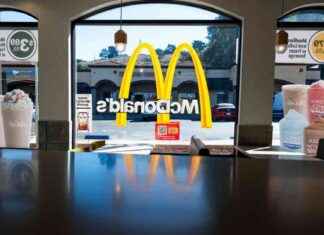sales of green products to more and more farmers are converting their farms to organic. A market turnaround is not in sight.
Biotomaten are popular. However, the German Producers can satisfy the need not in photo: chrome orange/imago
The organic food turnover cover in Germany, grew up in 2019 again rapidly, the market share stagnated however almost. This is evident from the Figures, the industry Association, Federation of the Organic food industry (BÖLW) on Wednesday for the Start of the world’s largest natural food presented to trade fair Biofach in Nuremberg, Germany. The Show and the end of the natural cosmetics trade fair Vivaness expected of 3,800 exhibitors from some 100 countries and 50,000 Trade visitors.
According to BÖLW consumer spending in 2019 is about 11,97 billion Euro for organic food, an increase of nearly 10 percent compared to the previous year. “Bio has scored points in all channels of distribution,” said BÖLW-managing Director Peter Röhrig. That’s right, – commented on Jan Wittenberg, Federal Executive Board of the Arbeitsgemeinschaft bäuerliche Landwirtschaft (ABL) and an organic Farmer. “But not all of the politics with the shopping trolley. The lip-service are strong, but the actual shopping mentality has to follow suit.“
The highest revenue producer of organic products in retail food stores, including discounters such as Aldi or Lidl belong to. According to BÖLW, 11 percent more than in the previous year were implemented 7,13 billion euros.
natural food specialty stores with organic food stores and chains such as Alnatura, or Because’s was able to increase its turnover by 8.4 percent to 3.18 billion euros. The highest Eco-share of turnover in the total food market is achieved according to the BÖLW, organic flour, with 26 per cent, eggs with 23 percent and milk 14 percent.
And yet: The share of organic food in the total food market is only 5.8 percent – only half a percentage point more than in the previous year. For comparison: in 2012 the share was at 3.7 per cent. The BÖLW reason for this is that products such as sausage tear with a big price difference between organic and conventional production the value down. Individual products such as organic milk and flour have now already up to 20 percent of the market share.
With the increase in sales, the number of Producers increases: 2019 found here every day around five farmers operate on organic agriculture. “Overall, the organic area increased in the past five years to almost 50 percent. One out of every ten hectares in Germany, the grandson is ready,“ said roehrig.
ABL Board of Directors of Wittenberg, is not yet convinced of a bright green future. He did not believe that all farms are converting to organic: “conventional agriculture is definitely more, and probably the majority remain.” 33.698 farms apply in this country as ecologically, 12.6 percent of all agricultural holdings.
“Domestically, we are not able to satisfy the demand for organic,” says Wittenberg. “That means we unfortunately have to import, particularly from the black sea region.” This must change, the organic Farmer. The industry needs to “ensure that we get through the glut of the new Bioware no price drop”.
For the BÖLW-Chairman Felix Prinz zu Löwenstein, the responsibility lies in Brussels and Berlin: “The EU’s agricultural policy is determined with billion, of which agriculture is worth it. It is important that at least 70 percent of the agricultural funds are tied to voluntary environmental performance.“







